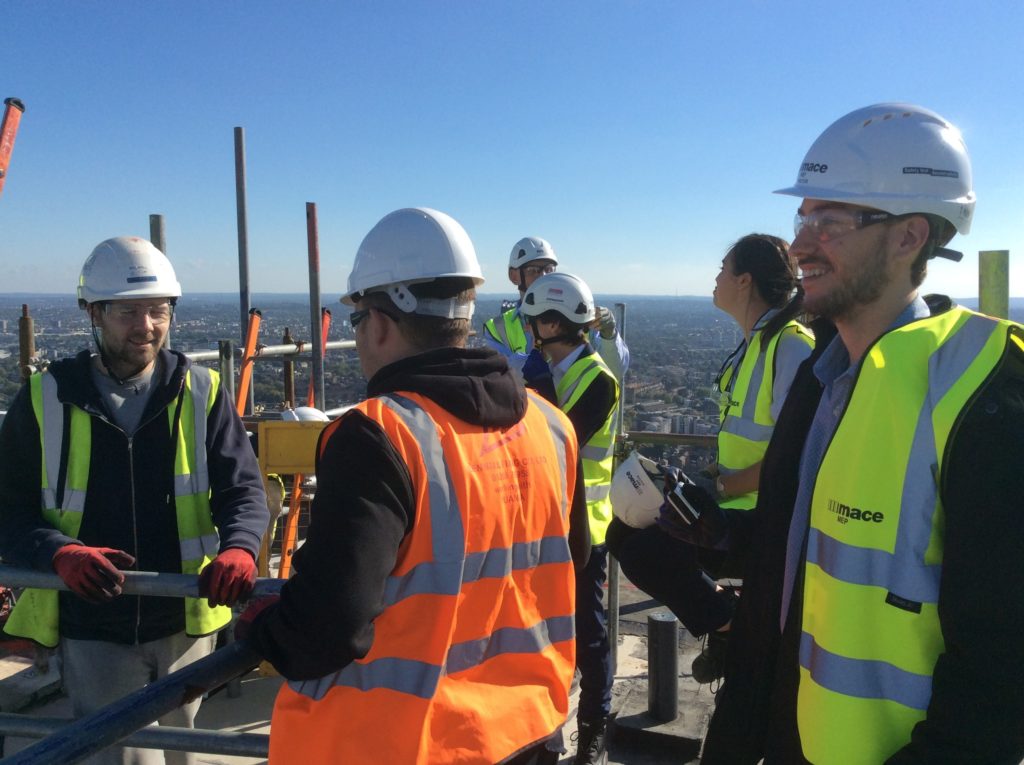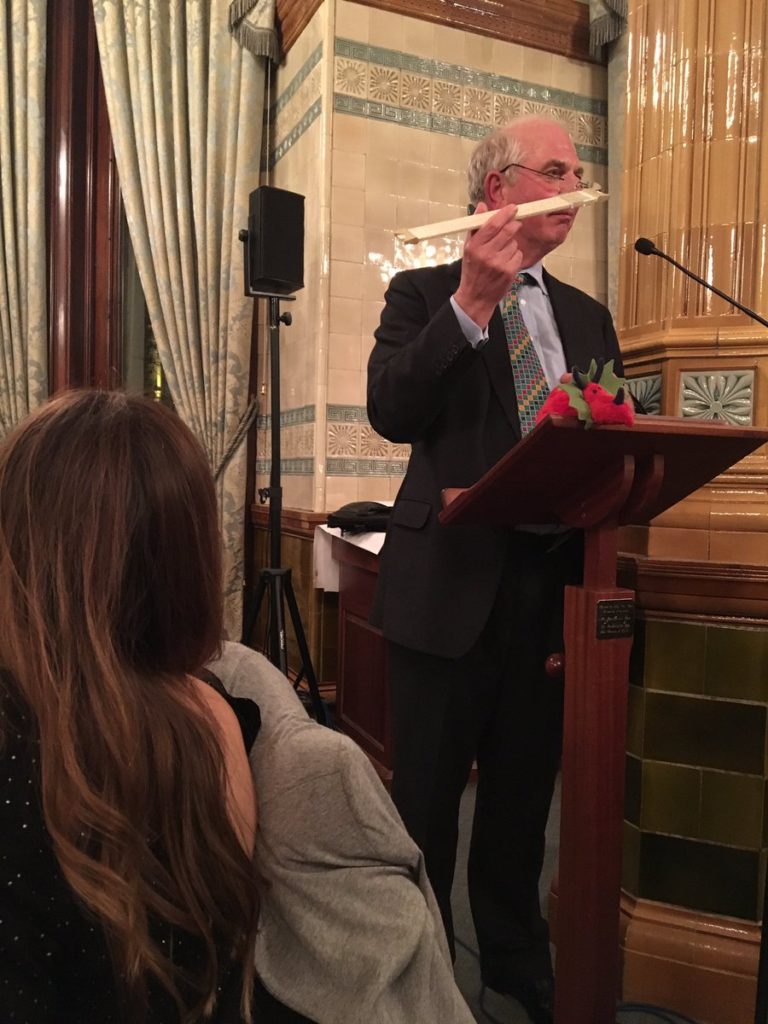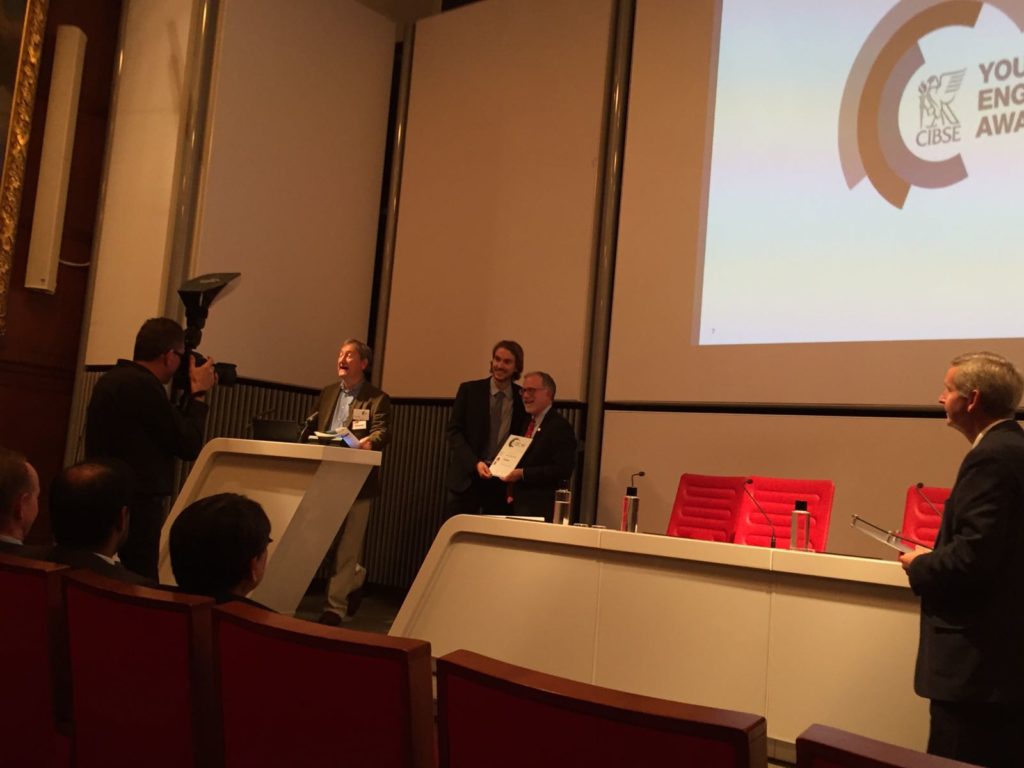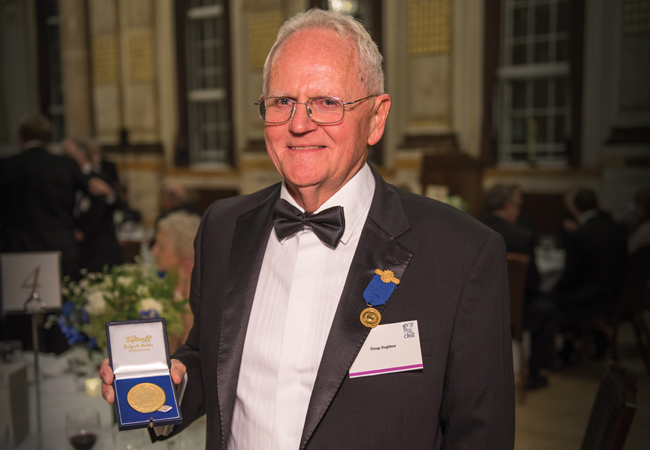The dinner was marked by the presence of these finalists from the CIBSE ASHRAE Graduate of the Year award:
Antoni J Sapina Grau – Winner of Graduate of the Year Award
Katie Ewing – Rumford Bursary Winner
Scott Mason – Rumford Bursary Winner
Richard Garthwaite – Finalist
Samantha Carlsson – Finalist
Farai Mwashita- Finalist
Monica Mondelo Madrigal – Finalist
Antoni J Sapina Grau reported back on a successful visit to the ASHRAE meeting in January.
Geoff Prudence (Vice Chair) paid a special tribute to two members of the Club who were in attendance at this meeting:
Ant Wilson, who was made an MBE for more than 30 years’ service to the industry in the New Year’s Honours. See CIBSE Journal.
Doug Oughton, who was recently awarded the CIBSE Gold Award. See CIBSE Journal.
‘We need to work together consistently and persistently for a common purpose’
Stephen Matthews, CEO of CIBSE, celebrated the fact that in its 70th year the Rumford Club continued to provide a catalyst for change by providing a forum for friendly debate.
He stated that CIBSE also has a vital role to play but certain things have to happen to ensure that it remains effective going forward. His main message was, “let’s “OODA”; Observe, Orient, Decide, and Act”.
The OODA Loop (coined by Captain John Boyd of the United States Air Force) recognises that change is constant and it’s no good in just observing and planning. You must be agile and be prepared to take action. Also, don’t be afraid of the possibility that you will get plenty of decisions wrong.
He likened the challenge to that needed for CIBSE to keep many plates spinning at the same time, and described five such “plates”.
Plate 1 – Membership. CIBSE and the other Institutions need an active, youthful membership. Members will be only attracted to it if the agendas are relevant to them.
Plate 2 – Companies. CIBSE needs to engage with members’ companies as the majority of member subscriptions are paid by them, and also because if CIBSE can help make the sector successful then companies can benefit from this. One challenge is that the larger companies do not always release their people to work for the greater good through CIBSE, and smaller companies may not have the time to offer such support.
Plate 3 – Money. There has to be a balance between affordable subscriptions and generating enough cash to fund member and societal benefits.
Plate 4 – Staff. CIBSE has many loyal and hard-working staff. On the other hand the Institution has to operate with many different priorities, the skills set is changing over time and it can be difficult to attract staff of the appropriate calibre.
Plate 5 – A digital presence. Digital-enabled business processes (such as CIBSE’s new CRM system) and the Institute’s internet presence need to be enhanced to improve efficiency and to meet the needs of today’s engineers.
Keeping all these plates spinning at the same time requires one to listen, watch and take action, and is a bit like walking on a tightrope: progress may seem slow, but that is probably the best way of dealing with the imbalances set up by strong “cross winds”. You must have vision, focus and balance, and be making progress in order to succeed.
Finally, there needs to be some kind of glue that holds it all together: this is the esprit de corps and high morale that ensures success.
In his Presidential Address of 2003, Terry Wyatt stated that we as an industry had to “adapt or die…”. We don’t know why dinosaurs disappeared as fast as they did, but it’s certain that they were unable to spot the sudden changes in their environment. In the words of Tim Wentz, ASHRAE president, “we need to adapt today so as to shape tomorrow”.
Our next meeting
16 March: Tony Howard, Head of Education and Training at BESA (the Building Engineering Services Association), on “In this time of austerity, will we still have a recognisable BSE sector or has the sector become fractionalised into traditional trades?”




